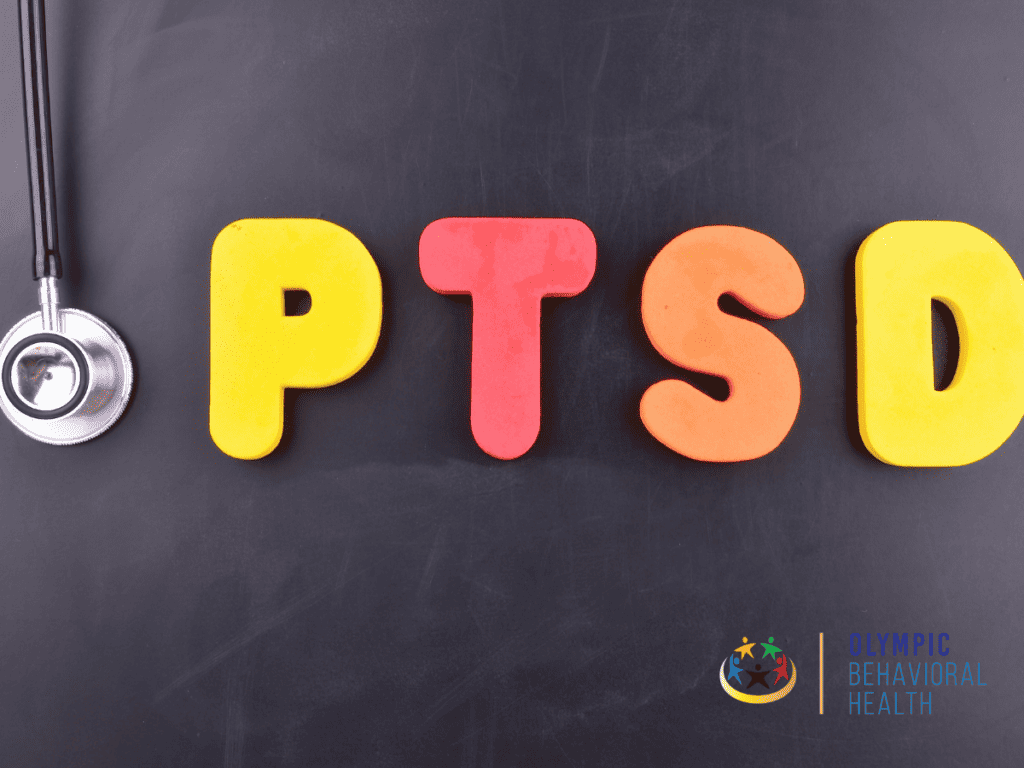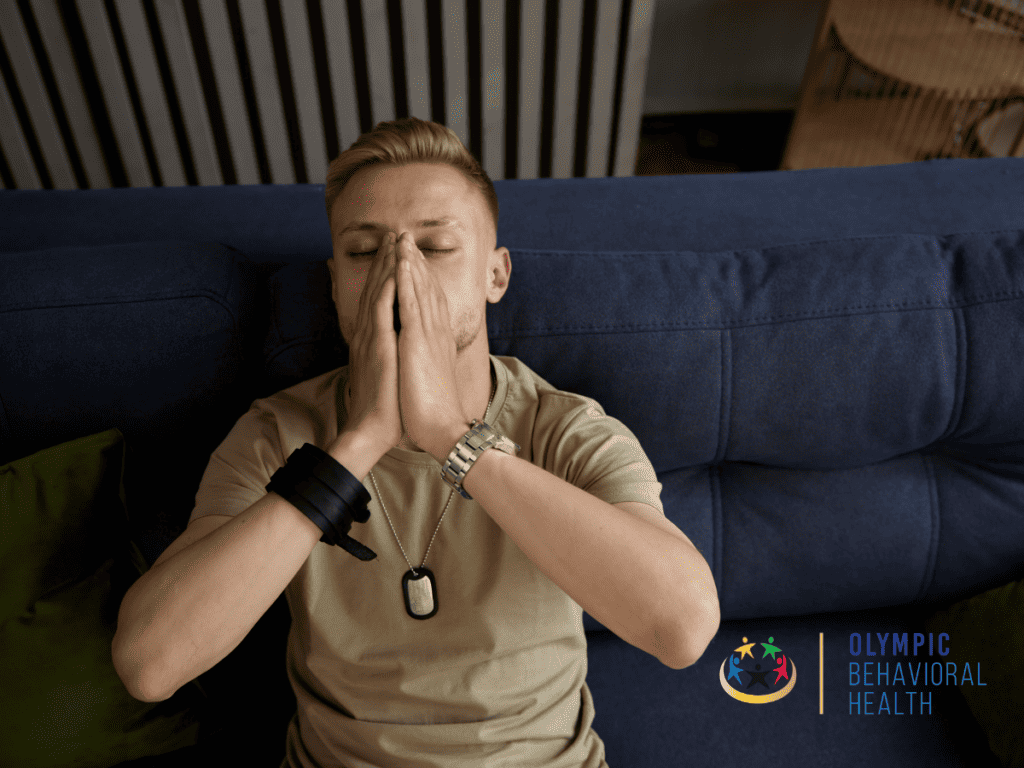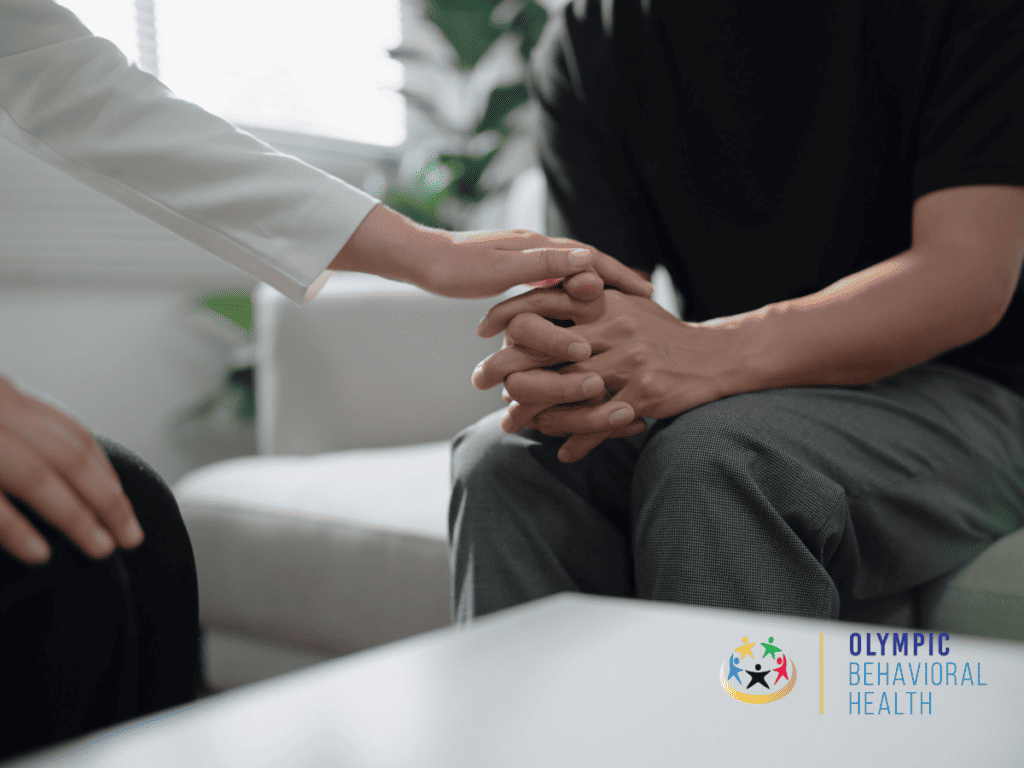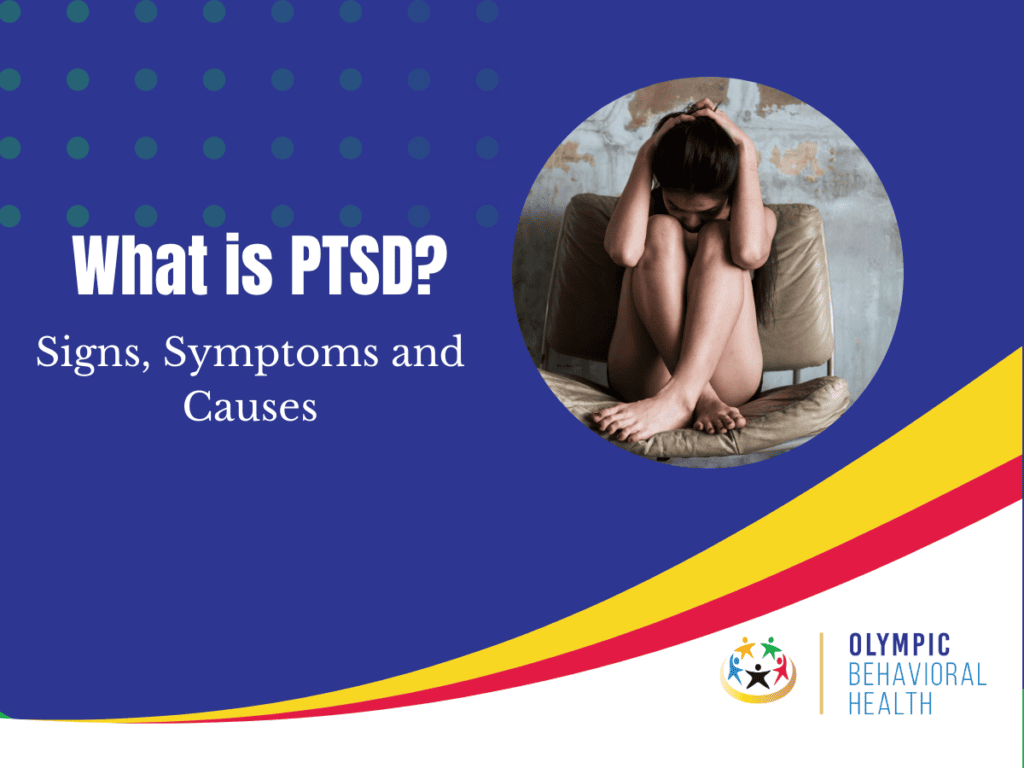Statistics from the National Center for PTSD underscore the prevalence and impact of traumatic experiences, with a significant portion of the population affected. In 2020, it was estimated that 13 million Americans had PTSD, a condition often intertwined with addiction.
Understanding the connection between PTSD and addiction is crucial, as trauma can catalyze substance abuse. Research indicates that individuals with PTSD are more likely to turn to drugs or alcohol as a coping mechanism, seeking relief from the distressing symptoms they experience. This self-medication may offer a temporary break but can ultimately exacerbate both conditions, leading to a vicious cycle of dependence and further trauma.
Recognizing the signs and symptoms of PTSD is paramount in addressing its role in addiction. These symptoms, ranging from re-experiencing traumatic events to emotional numbing and hyperarousal, can significantly impair daily functioning and contribute to substance misuse. Moreover, the delayed onset of symptoms underscores the importance of early intervention and comprehensive treatment approaches.
The causes of PTSD are multifaceted, encompassing exposure to life-threatening events, genetic predispositions, and neurobiological factors. For individuals struggling with addiction, understanding the complex interplay between trauma and substance use is essential for effective recovery.

What is PTSD?
According to the National Institutes of Health, post-traumatic stress disorder (PTSD) is a mental health condition that can arise following exposure to or observation of a life-threatening incident, such as combat, a natural disaster, a car crash, or sexual assault. It often occurs concurrently with addiction and is characterized by a range of symptoms, including nightmares, intrusive thoughts related to the event, emotional flashbacks, and efforts to avoid distressing memories.
What Are The Signs and Symptoms of PTSD?
The symptoms of post-traumatic stress disorder (PTSD) can have a significant impact on daily life. These symptoms usually develop within a month of experiencing a traumatic event, but in some cases, it may take several months or even years for them to appear.
People with PTSD may experience periods of mild symptoms followed by periods of more severe symptoms. While there can be a wide range of symptoms of PTSD, they generally fall under the categories described below.
Re-experiencing Trauma
Re-experiencing trauma is a hallmark symptom of post-traumatic stress disorder (PTSD) and plays a significant role in the development and maintenance of addiction. Incorporating trauma-informed care into addiction treatment is crucial for addressing the underlying trauma and providing individuals with the support and resources they need to heal. Trauma-informed care recognizes the impact of trauma on individuals’ lives and prioritizes safety, trust, empowerment, and collaboration in the treatment process.
By creating a supportive and validating environment, trauma-informed care helps individuals process their traumatic experiences, develop healthy coping mechanisms, and build resilience, ultimately reducing the risk of relapse and promoting long-term recovery.
Individuals who repeatedly relive traumatic events are at heightened risk of turning to substances as a means of coping with overwhelming emotions and distressing memories. These experiences manifest involuntarily and intensely, often taking the form of flashbacks, nightmares, distressing images, or sensations that persistently resurface.
The physical sensations accompanying these re-experiences, such as pain, sweating, nausea, or trembling, further exacerbate the distress and drive individuals to seek relief through substance use. Additionally, persistent negative thoughts and self-blame about the traumatic event contribute to feelings of guilt, shame, and worthlessness, which fuel addictive behaviors as individuals attempt to numb or escape from these painful emotions.
Avoidance and Emotional Numbing
Avoiding reminders of a traumatic event is a significant symptom of PTSD and can often lead to self-medication through substance use. This often involves staying away from particular people or places that trigger memories of the trauma or refraining from discussing the experience with anyone.
Individuals with PTSD may attempt to push the event out of their minds by engaging in work or hobbies that distract them from the memories.
Sometimes, people try to manage their emotions by numbing themselves, often resorting to substances, which can exacerbate addiction issues. This can cause them to become socially isolated and withdrawn, and they may also lose interest in activities they once enjoyed.
Hyperarousal (Feeling “On Edge”)
Individuals with PTSD often experience heightened anxiety and difficulty relaxing, known as hyperarousal. This state of constant alertness can result in irritability, angry outbursts, insomnia, and challenges in concentration, all of which may fuel addictive behaviors as individuals seek relief or escape from these distressing symptoms.
Additional Challenges
Beyond these core symptoms, those with PTSD may encounter various other difficulties, including co-occurring mental health issues like depression, anxiety, or phobias. Self-destructive behaviors, such as drug or alcohol misuse, can emerge as individuals attempt to cope with their symptoms, exacerbating addiction issues. Physical symptoms like headaches, dizziness, chest pains, and stomach aches may also manifest, further complicating the picture. The impact extends to work-related problems and the potential breakdown of relationships.
Can The Intensity of Symptoms Change?
The severity of PTSD symptoms is not constant and may fluctuate over time. Instances of heightened stress or encountering reminders related to the traumatic event can exacerbate these symptoms, potentially triggering addictive behaviors as individuals seek relief. For example, the mere sound of a car backfiring might trigger the reliving of combat experiences. At the same time, exposure to a news report detailing a sexual assault could overwhelm an individual with memories of their own traumatic experience, leading to increased vulnerability to substance misuse.
The variability in symptom intensity underscores the intricate interplay between external stressors and the emotional impact of past traumas, highlighting the need for nuanced approaches to managing and understanding PTSD within the context of addiction.
What To Do If I’m Having Suicidal Thoughts?
In moments of despair, reaching out for support is crucial. If you or someone you care about is having suicidal thoughts, consider connecting with any of the following resources:
- Lean on the support of a close friend or a loved one who can offer understanding and empathy.
- Seek solace from a minister, spiritual leader, or someone within your faith community who can provide spiritual guidance and comfort.
- Utilize a suicide hotline for immediate assistance. In the U.S., dial or text 988 to connect with the 988 Suicide & Crisis Lifeline, available round-the-clock. Alternatively, engage in a confidential conversation through Lifeline Chat. These services are both free and confidential.
- Schedule an appointment with your doctor or a mental health center to access professional guidance and support tailored to your needs. Remember, you don’t have to face this alone; help is available.
What is Substance Use and Co-occurring PTSD?
Substance use and co-occurring post-traumatic stress disorder (PTSD) represent a complex and intertwined phenomenon where individuals experience both conditions simultaneously. Substance abuse and addiction are frequently associated with comorbid conditions such as PTSD, depression, and anxiety.
Individuals seeking assistance for PTSD are significantly more prone to receiving a co-diagnosis of a substance use disorder (SUD), with the likelihood being 14 times higher. The attempt to self-medicate is often cited as a contributing factor to the prevalence of substance misuse among those with PTSD. The rationale behind this behavior suggests that individuals with PTSD may turn to substances to alleviate or evade the symptoms of their condition. Notably, individuals with PTSD and a co-occurring SUD are more inclined to misuse alcohol rather than drugs.
Studies indicate that service members and veterans with a propensity for heavy drinking are at an increased risk of experiencing PTSD and depression. War veterans diagnosed with PTSD who also engage in alcohol consumption are frequently diagnosed with binge drinking tendencies.
What is the Highest Risk Group for PTSD and Addiction?
One of the demographics at most significant risk for both post-traumatic stress disorder (PTSD) and addiction comprises military veterans. As reported by the U.S. Department of Veterans Affairs, veterans seeking treatment for substance use disorders (SUDs) often receive a concurrent diagnosis of PTSD. This prevalence is likely attributable to the intense emotional, physical, and psychological tolls of combat experiences. Mainly, service members deployed to conflict zones such as Iraq and Afghanistan face heightened risks of developing PTSD.
Moreover, PTSD has been associated with veterans who have endured sexual assault or harassment during their military tenure. Traumatic experiences within the military can affect individuals of any gender, with instances of sexual trauma encompassing assault, abuse, or harassment. According to statistics from the Veterans Affairs (VA), approximately one in five female veterans has received a diagnosis of military sexual trauma.

What Are The Causes of PTSD?
Post-traumatic stress disorder (PTSD) can affect individuals of all ages, but certain factors may increase the likelihood of developing PTSD following a traumatic event. These factors include:
- Experiencing Intense or Prolonged Trauma: Individuals who undergo particularly intense or prolonged traumatic experiences may be more susceptible to PTSD.
- Prior Traumatic Experiences: Those who have encountered trauma earlier in life, such as childhood abuse, may be at an increased risk of developing PTSD.
- Occupational Exposure to Trauma: Certain professions, like military personnel and first responders, carry a higher risk of exposure to traumatic events, thereby elevating the likelihood of PTSD.
- Pre-existing Mental Health Conditions: Individuals with pre-existing mental health issues, including anxiety or depression, may have an increased vulnerability to developing PTSD.
- Substance Misuse: Problems related to substance misuse, such as excessive drinking or drug use, can contribute to an elevated risk of PTSD.
- Lack of Support System: The absence of a robust support system comprising family and friends may exacerbate the likelihood of developing PTSD.
- Family History of Mental Health Problems: Having blood relatives with mental health problems, particularly anxiety or depression, may also be a contributing factor to an increased susceptibility to PTSD.
What Kind of Traumatic Events Can Develop PTSD?
The prevalent triggers for the onset of post-traumatic stress disorder (PTSD) encompass a variety of events, including:
- Combat Exposure: Participation in armed conflicts or exposure to combat situations.
- Childhood Physical Abuse: Experiencing physical abuse during childhood.
- Sexual Violence: Surviving incidents of sexual assault or violence.
- Physical Assault: Enduring acts of physical aggression or violence.
- Threatened with a Weapon: Experiencing situations where one’s life is threatened by using a weapon.
- Accident: Involvement in accidents that lead to physical or emotional trauma.
Additionally, various other traumatic events can also contribute to the development of PTSD, including but not limited to:
- Fire.
- Natural Disaster.
- Mugging.
- Robbery.
- Plane Crash.
- Torture.
- Kidnapping.
- Life-Threatening Medical Diagnosis.
- Terrorist Attack.
- Other Extreme or Life-Threatening Events.
What are The Causes of Co-Occurring PTSD and Addiction?
The causes of co-occurring post-traumatic stress disorder (PTSD) and addiction are multifaceted and can vary from individual to individual. However, several common factors contribute to the development and interplay of these two conditions:
- Traumatic Experiences: Trauma is a primary trigger for both PTSD and addiction. Individuals who have experienced traumatic events such as physical or sexual abuse, combat exposure, natural disasters, accidents, or witnessing violence are at increased risk of developing PTSD. The distressing memories and emotions associated with trauma can lead some individuals to turn to substances as a way to cope with or numb their feelings.
- Genetic Predisposition: Genetic factors play a role in the development of both PTSD and addiction. Some individuals may have a genetic predisposition to specific mental health disorders or addictive behaviors, making them more vulnerable to experiencing these conditions in response to trauma or substance use.
- Neurobiological Changes: Both PTSD and addiction involve changes in brain chemistry and functioning. Chronic stress from trauma can dysregulate the brain’s stress response systems, leading to heightened arousal, hyperactivity of the amygdala (the brain’s fear center), and alterations in neurotransmitter levels such as dopamine and serotonin. Similarly, substance use can hijack the brain’s reward pathways, leading to cravings, tolerance, and dependence.
- Coping Mechanisms: Many individuals with PTSD turn to substances as a way to self-medicate and alleviate their symptoms. Drugs or alcohol may provide temporary relief from intrusive memories, nightmares, hypervigilance, or emotional numbing associated with PTSD. However, substance use ultimately exacerbates symptoms and can lead to the development of addiction.
- Environmental Factors: Environmental influences, such as exposure to substance use within one’s social circle or community, can also contribute to the co-occurrence of PTSD and addiction. For example, veterans returning from deployment may be exposed to high levels of substance use in military environments, leading to an increased risk of addiction.
- Dual Diagnosis: In some cases, individuals may have pre-existing vulnerabilities, such as a history of mental health disorders or substance use, which increase their susceptibility to developing both PTSD and addiction concurrently. This dual diagnosis requires specialized treatment approaches that address both conditions simultaneously.

What Are The Risks Associated With PTSD?
Post-traumatic stress disorder (PTSD) poses various risks and challenges for those affected. Some of the critical risks associated with PTSD include:
- Impaired Mental Health: Individuals with PTSD are at an increased risk of developing or exacerbating mental health conditions such as depression, anxiety disorders, and phobias.
- Substance Misuse: There is a higher likelihood of engaging in substance misuse, including alcohol and drug abuse, as a way of coping with the emotional distress associated with PTSD.
- Physical Health Consequences: Chronic stress from PTSD can contribute to physical health issues such as cardiovascular problems, gastrointestinal disorders, and immune system suppression.
- Relationship Strain: PTSD can strain relationships with family, friends, and romantic partners due to emotional withdrawal, difficulty in communication, and challenges in maintaining intimacy.
- Occupational Impairment: Work-related problems may arise, including decreased job performance, difficulty concentrating, and absenteeism, potentially leading to job loss or career setbacks.
- Increased Risk of Suicidal Thoughts and Behaviors: Individuals with PTSD are at a heightened risk of experiencing suicidal thoughts and engaging in self-harming behaviors.
- Reduced Quality of Life: The overall quality of life may decline as individuals with PTSD deal with persistent distress, emotional numbness, and a diminished ability to engage in activities they once found enjoyable.
- Comorbidity with Other Mental Health Conditions: PTSD often coexists with other mental health disorders, compounding the complexity of treatment and management.
- Impact on Physical Well-being: The chronic stress associated with PTSD may contribute to a range of physical symptoms, including headaches, fatigue, and sleep disturbances.
- Social Isolation: Individuals with PTSD may withdraw from social activities and isolate themselves, leading to a diminished support system and exacerbating feelings of loneliness.
Can PTSD Be Prevented?
Following a traumatic experience, many individuals initially experience symptoms similar to post-traumatic stress disorder (PTSD), such as persistent thoughts about the event and common emotional reactions like fear, anxiety, anger, depression, and guilt.
Receiving timely assistance and support can play a crucial role in preventing normal stress reactions from escalating into PTSD. Seeking solace from family and friends who offer a listening ear and comfort is one avenue of support. Additionally, consulting with a mental health professional for a brief therapeutic intervention may prove beneficial. Some individuals may also find comfort and support within their faith community.
Engaging with a support system can aid in preventing the adoption of unhealthy coping mechanisms, such as substance misuse, and contribute to overall emotional well-being.
What is The Treatment for Co-occurring PTSD and Addiction?
Addressing co-occurring post-traumatic stress disorder (PTSD) and addiction requires a comprehensive treatment approach tailored to the unique needs of each individual. If you or someone you know is struggling with both PTSD and addiction, timely intervention is essential for promoting healing and recovery. Effective treatments aim to address both conditions concurrently, offering avenues for stabilization and improved well-being. Consider the following treatment approaches:
Integrated Therapy Programs
Integrated therapy programs offer a holistic approach to treating co-occurring PTSD and addiction. These programs combine evidence-based therapies for PTSD, such as cognitive-behavioral therapy (CBT) and exposure therapy, with addiction treatment modalities, such as cognitive-behavioral interventions and motivational interviewing. By addressing both conditions simultaneously, integrated therapy programs help individuals develop coping skills, process traumatic experiences, and learn healthier ways of managing cravings and triggers.
Trauma-Informed Care
Trauma-informed care recognizes the impact of trauma on individuals’ lives and integrates trauma-sensitive approaches into treatment. This includes creating a safe and supportive environment, validating individuals’ experiences, and providing specialized interventions to address PTSD symptoms. Trauma-informed care emphasizes collaboration, empowerment, and choice, allowing individuals to actively participate in their recovery journey while receiving the support they need to address both PTSD and addiction.
Medication-Assisted Treatment (MAT)
Medication-assisted treatment may be utilized to address both PTSD and addiction symptoms. While medications specifically targeting PTSD are limited, certain medications commonly used in addiction treatment, such as antidepressants and anti-anxiety medications, may help alleviate PTSD symptoms such as depression, anxiety, and insomnia. Additionally, medications approved for treating addiction, such as opioid agonists or antagonists for opioid use disorder, may be beneficial in managing cravings and withdrawal symptoms while addressing PTSD-related substance use.
Supportive Services
Supportive services play a crucial role in the treatment of co-occurring PTSD and addiction, providing individuals with the resources and support they need to navigate their recovery journey. These services may include individual and group counseling, peer support groups, case management, vocational assistance, and housing support. By addressing various aspects of individuals’ lives, supportive services help promote long-term recovery and stability.
Get Help at Olympic Behavioral Health
At Olympic Behavioral Health, we recognize the intricacies involved in treating co-occurring Post-Traumatic Stress Disorder (PTSD) and addiction, offering specialized care tailored to the unique needs of each facing dual diagnosis challenges. Our experienced team of mental health professionals employs evidence-based therapies, such as Cognitive Behavioral Therapy (CBT) and Eye Movement Desensitization and Reprocessing (EMDR), to address the underlying causes of both PTSD and addiction.
In our supportive and safe environment, individuals receive personalized attention and guidance to develop coping strategies, manage symptoms, and navigate through traumatic memories while addressing substance use concerns. Our holistic approach ensures comprehensive care, addressing all aspects of our client’s well-being, fostering resilience, and supporting their journey toward healing and long-term recovery from dual diagnosis challenges.

Share This Post



